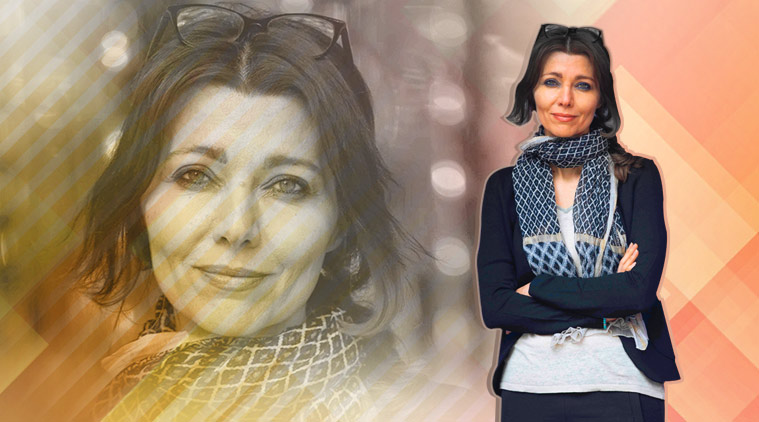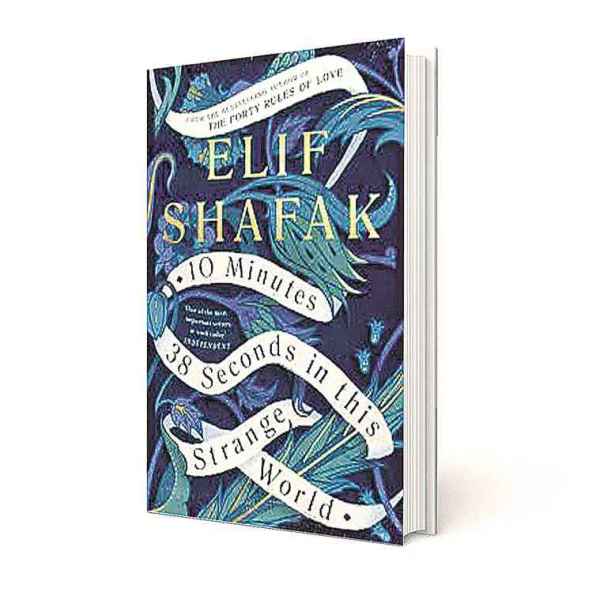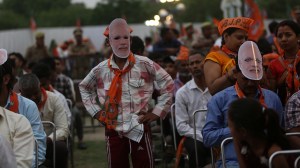- India
- International
The novel is one of our last democratic spaces: Turkish writer Elif Shafak
The 47-year-old Turkish writer Elif Shafak on her new novel, the questions literature must raise and the muzzling of writers and artists in her country.
 Artists and writers speak the language of empathy and therefore need need to be more engaged, feels Elif Shafak. (Photo: Ferhat Elik) (Designed by Gargi Singh)
Artists and writers speak the language of empathy and therefore need need to be more engaged, feels Elif Shafak. (Photo: Ferhat Elik) (Designed by Gargi Singh)
In May this year, the Turkish prosecutors announced that they were putting your works, and those of other Turkish writers like Ayse Kulin and Abdullah Sevki, under investigation. Give us a sense of your hurt, despair and anger.
I am a fiction writer, a storyteller. That means I am interested in not only stories but also silences. The things we cannot talk about. The silenced. In Turkey, we have seen an alarming increase in cases of sexual harassment, gender inequality and number of child brides. These are important problems and we need to deal with them urgently, sincerely.
But instead of trying to improve the situation, instead of changing the patriarchal laws that systematically discriminate against women, instead of opening shelters for abused women and children, instead of helping the victims, the authorities are now investigating fiction writers. This, I find sad. Also, I find it hurtful because all my life, I have defended women’s rights, human rights, children’s rights and I have written my stories through the eyes of the victims. I always try to give more voice to the voiceless.
You were put on trial in 2006 for “insulting Turkishness” for your novel, The Bastard of Istanbul. Now, two of your novels, The Gaze, and the latest, 10 Minutes 38 Seconds In this Strange World, are under scanner. What do you make of the objections to these novels?
The novel is a democratic space. It is one of our last remaining democratic spaces in today’s extremely polarised world. In my novels, I question taboos — political, cultural, social and sexual taboos. I believe it is a novelist’s job to ask questions about difficult issues and some of these issues might have been suppressed, silenced, censored — but it’s not my intention in any way to try to “preach” the answers. I don’t like that.

I always leave the answers to the readers. But literature should be able to raise honest questions and in doing so, make the invisible a bit more visible, make the unheard a bit more heard, and bring the periphery to the centre and give the disempowered a bit more power…. Here is the irony: the prosecutors who are investigating novels for “obscenity” or the ultra-nationalists or Islamists who are attacking artists and writers on social media and their newspaper columns, they do not, in truth, read literature. They openly say it, too.
 Elif Shafak’s latest novel, 10 Minutes 38 Seconds in this Strange World.
Elif Shafak’s latest novel, 10 Minutes 38 Seconds in this Strange World.
They say, “I haven’t read this novel but it should be banned.” Or they say, “I haven’t read this novelist but she should be prosecuted.” They just pluck sentences out of text and use them out of context. All of this, I find surreal and sad in equal measure. It is difficult to talk about politics in Turkey and it became even more difficult as the government became more and more authoritarian. And it is also difficult to question patriarchy.
In your novels, you have championed the cause of the people on the periphery. Most of your characters are misfits and marginalised. In 10 Minutes, 38 Seconds in This Strange World, you put the focus on a sex worker who recounts her own story after she is murdered. It’s a very interesting narrative device. Tell us about the genesis of the story and why you chose the way you tell it.
There are fascinating scientific studies that show that after the moment of death, after the heart has stopped beating, the human mind continues to work for another few minutes. Sometimes, the brain keeps working for about ten more minutes. I was fascinated by these studies.
I added my own 38 seconds and wanted to ask: what can a human being remember in that limited amount of time? What remains behind of a whole life — the good memories or the bad memories. The main character in my new novel is a sex worker in Istanbul. At the very beginning of the story, we learn right away that she has been killed and her body has been dumped in a garbage bin. But her brain is still functioning and as she remembers her past, minute by minutes, the readers will travel into her story — and the story of Turkey and the Middle East, but told through the eyes of outcasts.
In what ways do you see your stories being informed by the two — or multiple — worlds you inhabit?
I do not like identity politics. Instead, I like multiple belongings. I am an Istanbulite and I carry the city in my soul. But I am also attached to the Balkans, the Aegean, the Mediterranean, the Middle East… I am a European by birth and choice. I have become a Londoner over the years and a British citizen. And despite what Theresa May has been saying, I am a citizen of the world, a citizen of humanity and a global soul.
We can be citizens of the world, that doesn’t mean we don’t have attachments. It means we have multiple attachments. It doesn’t mean we don’t care about any place. It means we care about many places and cultures and we care about humanity.
For you, Istanbul is “a metropolis made of memories, myths and messianic longings”. How has the city shaped your consciousness?
I always think of Istanbul as a She-city. It makes me sad that today when you walk around, many parts of the city belong to men, especially after dark. Streets, public squares, teahouses, coffee-houses… I want women and minorities to reclaim the urban space. I want people to remember that this city always had a feminine core, a feminine spirit. In Ottoman times, all the poets depicted Istanbul as a strong woman.
In Byzantium times, before that, Istanbul was always associated with goddesses and female spirits. So, there is a part of me that wants to bring back that female energy into the urban space and the urban narrative.
In the last decade, you have been a witness to Turkey slipping backwards. And, of late, authoritarianism and populism have been the order of the day across the globe. Do writers and artists of the world have a greater responsibility in dark times?
Today, all across the world, we are seeing a decline in liberal democratic values. We see an increase in ultra-nationalism, isolationism, tribalism, religious fundamentalism. All of this, I find very worrying. We have entered an age in which none of us can be disconnected.
We must be engaged citizens. This is an important time for global sisterhood and global solidarity. As writers coming from wounded democracies, like Turkey, Nigeria, Egypt, Brazil, Venezuela… — the list is so long — we don’t have the luxury of being non-political. We don’t have the luxury of saying, “well, I only want to talk about my own fiction” when there is so much injustice and inequality happening outside the window. We must speak up.
You have described storytelling to be an ‘‘antidote to the madness of our times.” What does the act of writing mean to you? In what ways do you see it in congruence with your other roles as a feminist or an activist?
Particularly, the novel is the antidote of the madness of our times. We live in a fast-moving world where everything is consumed and put aside. The novel requires us to slow down and think. We are always in the company of other people, in collective identities. But when we read a novel we are alone. It is the loneliest form of art. The writer s lonely while she or he is writing.
The reader is also lonely while she or he is reading. Those pockets of loneliness are good, constructive because we travel within. We go into an inner space, an inner garden. I sincerely believe each and every one of use must cultivate an inner garden where we can retreat from time to time and contemplate. Literature restores out individuality — not in a selfish way, but in a way that helps us to connect with the rest of the humanity. Literature shows us that there is no “Other.” In fact, “the Other” is my brother, my sister…. The Other is me.
How should writers and artists respond to the threat from populist demagogues?
There was a time when, especially in the West, an extreme optimism was the dominant mood. Especially, tech-optimism. People from Silicon Valley would tell us how digital technologies were going to bring democracy to every corner of the world. They thought Facebook would bring democracy to the Middle East. But digital technologies and social media are a bit like the moon. There is a bright side to it, for sure.
But there is also a dark side. We must be aware of the dark side of digital technologies. Today, we have entered the age of pessimism, anxiety, anger, fear and resentment. There is a sense of frustration. Artists and writers speak the language of empathy and humanism.
Not apathy and tribalism. We need to be more engaged. At a time when truth is under attack and democracy is threatened, fiction writers — and all of us — have an obligation to get out of our comfort zones and connect across borders.
Apr 25: Latest News
- 01
- 02
- 03
- 04
- 05







































